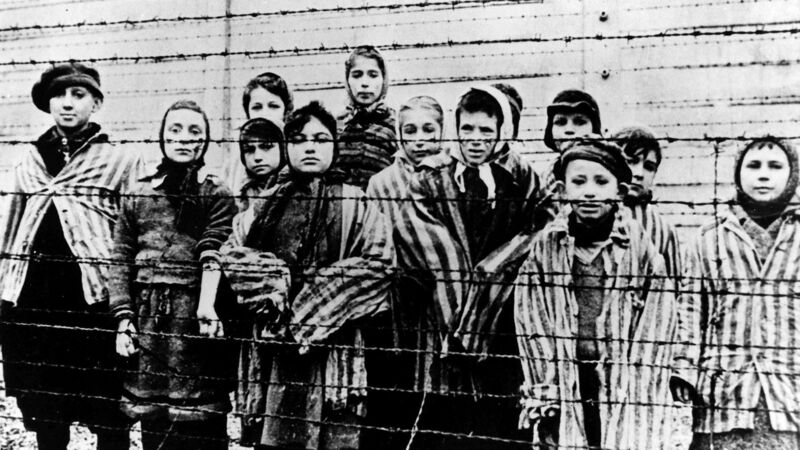'It didn’t start with gas chambers. It started with politicians dividing the people, us vs them...’

Children who had survived photographed just after the liberation of the Auschwitz death camp on January 27, 1945. Picture: CAF pap/AP
Politics had never been part of Holocaust Memorial Day in Ireland. That, like so much, dramatically changed this year.
Undiplomatic disagreements over speaking at the solemn event have embroiled President Michael D Higgins and Israeli Ambassador Dana Erlich, as well as event organisers, Holocaust Education Ireland, and the Jewish Representative Council of Ireland.














